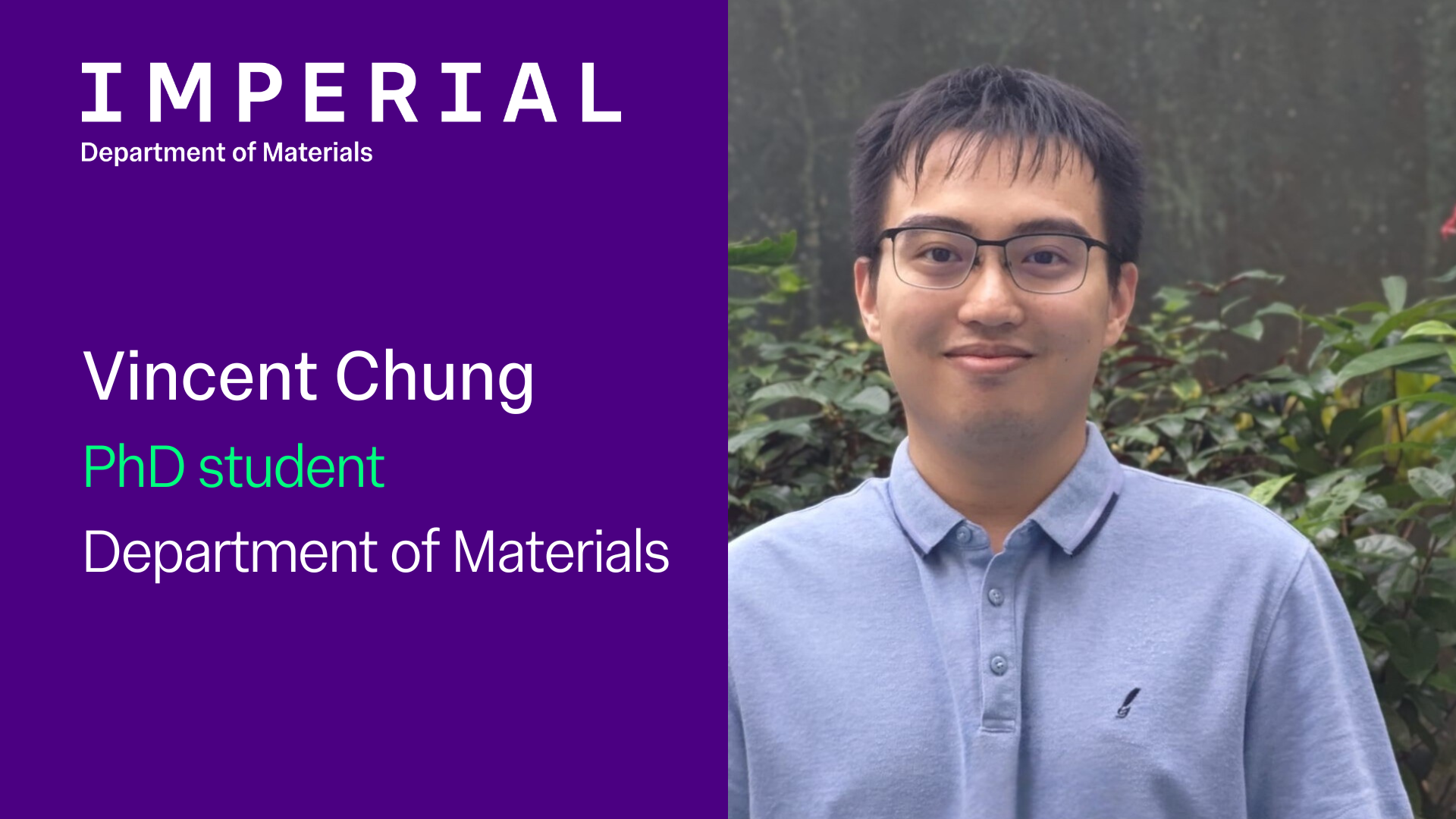
In our PhD Spotlight series, we speak with research students in the Department of Materials to learn more about their work, inspirations, and experiences during their PhD journey.
This time, we caught up with Vincent Chung, who is exploring how data-driven approaches can help identify synthesizable materials and improve the efficiency of experimental validation. Vincent recently celebrated a major milestone by passing his Phd viva. In this spotlight, he shares what inspired him to pursue this path, talks about his research, and reflects on the challenges and insights gained along the way.
1. What inspired you to study for a PhD?
I have been interested in materials discovery since secondary school, where I was fascinated by books that describe a better future with technologies based on new materials (e.g. Michio Kaku’s “Physics of the Future”). The major reason that I decide to study for a PhD is my Master Project, which was to discover a new material for photocatalytic applications using machine learning. In the end of the project, the identified hypothetical material could not be synthesised, which got me interested in finding ways to identify materials that can be synthesised.
2. How would you explain your research to someone outside the field?
With the data I curated manually, I train machine learning models to predict whether hypothetical inorganic materials can be synthesised using solid-state reactions, which is one of the simplest and oldest synthesis method (sometimes referred to as the shake-and-bake, where you mix the starting chemicals the heat them, kind of like baking a cake!). Afterwards, I train different models to predict the synthesis conditions for the solid-state reactions and compare the use of different training and testing data. The comparison highlights the impact of the training data on the models’ performances.
3. Why did you study this area and why is it important?
There are more and more people who are interested in using data-driven approaches (e.g. large language model is the most recent trend) every year, but not enough attention in whether the data used for training these models is sufficient in terms of quality and variety. This could lead to misinterpretation or misuse of models when they are deployed in real world environment like laboratories.
4. What difference do you hope your research will make?
I hope my research will convince researchers the importance of having better quality and variety of data as opposed to simply implementing the latest and more sophisticated models. New machine learning models are constantly being developed and would sometimes overshadow previous ones, but high-quality data will always be useful.
5. What do you enjoy most about what you do?
I enjoy finding insights and reaching conclusions from analysing data and training models. It is exciting when you learn something new from data that is overlooked by others. It is also fun to look for new ways that the data you curated can be used.
6. What’s something your colleagues would be surprised to learn about you?
I used to play Muay Thai as a hobby and enjoy reading Chinese novels, especially the Xianxia and Wuxia genres.
7. What’s been the biggest challenge so far in your PhD journey?
The biggest challenges I faced during my PhD were problems not related to my research (which would have surprised myself from the past), but several health and family problems. I had to make compromises and changes to my research plan and life during the journey.
8. What advice would you give someone thinking about starting a PhD?
The advice that I would give to someone planning to start a PhD is to really understand the expectation and commitment of a PhD candidate. The best way to do so is to communicate or work with current PhD candidates or postdoctoral fellow (e.g. through the undergraduate research opportunity programme at Imperial, which was what I did), preferably ones whose research aligns with your interest.
Vincent’s work highlights the growing role of data-driven methods in materials discovery, and we’re excited to follow the progress of his research in the years ahead.